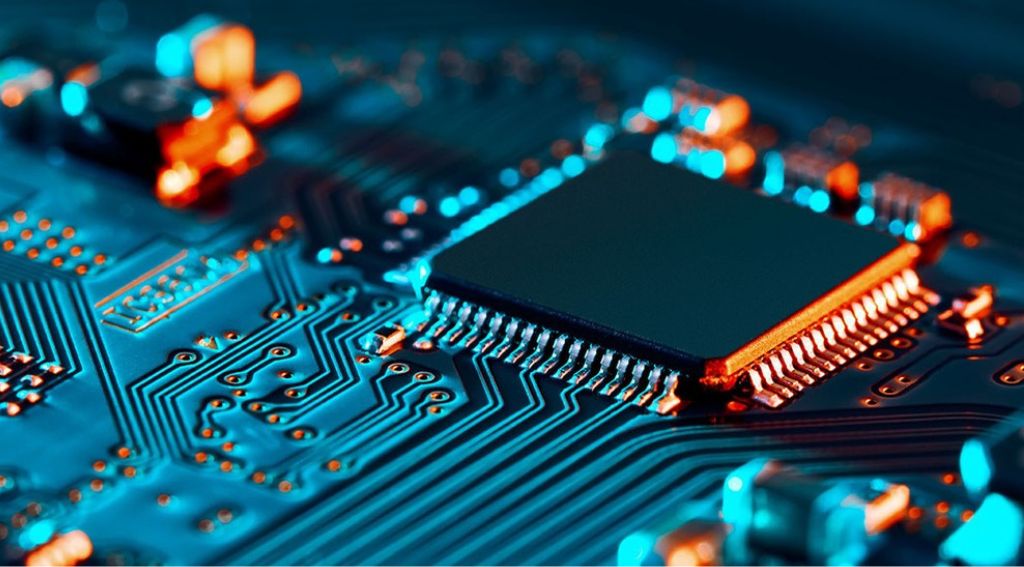Ups and downs of US chip market

The US chip market, which has seen a significant rally with companies like Nvidia and AMD doubling their value over the past year, is now facing pressure. Warnings have emerged that the boom in artificial intelligence (AI) is potentially obscuring a wider downturn in semiconductor demand.
Rise of Philadelphia Stock Exchange Semiconductor Index
The Philadelphia Stock Exchange Semiconductor Index, tracking the top 30 US chip companies, has surged by over 50 percent in the past 12 months. This rise is largely attributed to investors’ confidence in the continued high demand for AI processors, which are integral to power applications like OpenAI’s ChatGPT.
The Philadelphia Stock Exchange Semiconductor Index, also known as the PHLX Semiconductor Sector Index or SOX, is an index that tracks the top 30 US chip companies. It’s a modified market capitalization-weighted index, representing companies involved in the design, distribution, manufacture, and sale of semiconductors.
Established on 1 December 1993, with a base value of 200.00, it underwent a two-for-one split on 24 July 1995. The index serves as a key indicator of the health and performance of the semiconductor industry.
Investors use the SOX to assess the semiconductor sector’s performance and make informed investment decisions. The index’s performance can be influenced by various factors, including technological advancements, market demand, and global economic conditions.
Chip demand – boon for few, challenge for many
However, the benefits of this high demand for AI chips have been reaped by only a select few companies. Big Tech companies and AI start-ups such as OpenAI and Anthropic have significantly contributed to this demand. Nvidia and its suppliers, including TSMC and Supermicro, have seen substantial gains, while most other chipmakers are struggling with accumulated inventories and reduced customer demand across various industries.
The industry’s optimism for a broader recovery has been shaken by disappointing forecasts for Q1 2024 from industry leaders Intel and Texas Instruments. After a challenging year for PCs and smartphones in 2023, new concerns have arisen about demand from automakers and industrial applications.
The resilience of the chip rally, which accelerated in the final months of 2023, will be tested next week with the release of earnings reports from AMD and Qualcomm. AMD is viewed as the primary competitor to Nvidia’s dominance in supplying the graphics processing units required for training the latest AI systems. Qualcomm, on the other hand, is hoping that new AI-powered smartphones will rejuvenate the mobile market.
Intel’s shares fell by approximately 12 percent on Friday, resulting in a market value loss of around $25 billion. This drop came after the company’s revenue forecast for Q1 fell short of Wall Street’s estimates by up to $2 billion. Analysts suggest that these weaker numbers indicate Intel’s losing ground to Nvidia, whose advanced chips have become essential for companies like Microsoft, OpenAI, and Meta, all of which are heavily investing in AI-focused data centres.
Earlier this month, Meta’s CEO Mark Zuckerberg announced plans to acquire nearly 600,000 high-end GPUs, primarily from Nvidia, by the end of this year. This multi-billion dollar investment is part of Meta’s intensified AI research efforts.
While a few tech giants with deep pockets are investing heavily in AI chips, semiconductor companies that manufacture components for a broader customer base in more traditional industries have reported subdued demand. This includes companies like Texas Instruments and ST Micro, whose performance has not met investors’ expectations. Texas Instruments announced this week that its first-quarter revenue would be around 10 percent lower than Wall Street forecasts.
Related topics:
AI chipmaker YMTC overcomes US restrictions (aibc.world)
Saudi Arabia and UAE race for Nvida chips to power AI ambitions (aibc.world)
Significant impact on Nvidia as Biden restricts export of AI chips (aibc.world)






